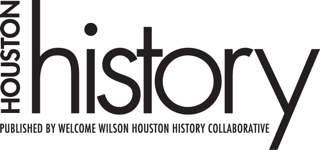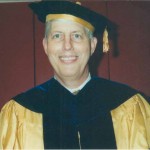Last fall the Jung Center sponsored a series of lectures called “Energy and the Soul of Houston.” My friend Beth Robertson persuaded me that I had something to say about energy, if not Houston’s soul. We agreed to share the stage.
She reflected on the life of her grandfather, the wildcatter Hugh Roy Cullen. I followed with thoughts about the life of my father, petrochemical plant worker Woodrow Wilson Pratt. Together we speculated on how our region’s soul—or at least its spirit—had been shaped by its famous wildcatters’ quest for oil and the quest for upward mobility by the hundreds of thousands of anonymous workers who migrated to the plants on the Texas and Louisiana Gulf Coasts.
Beth spoke of the wildcatters’ values: “The soul of Houston’s collective consciousness is the measure of Houston’s wildcatters—individualistic, independent, inventive, bold, determined, risk-takers, men of their word, never give up, hard working, hard playing, never take anything for granted.” The “can do” spirit of Hugh Roy Cullen and other wildcatters permeated Houston as it matured into a major metropolis in the mid-twentieth century.
Cullen came to the Houston region in search of oil in 1911, and he found plenty of it. His proud granddaughter described handshake deals involving millions. She recalled the drilling of the famous Thompson field near the Brazos River where her granddad and his workers did not give up, even though they had great difficulties setting up the well and then had to deal with two disastrous blow-outs a year later. On another project, her “pig-headed” granddad argued with his partner, Big Jim West, about drilling a discovery well at the exhausted Humble field, where “It was hard to even find a place to drill there were so many abandoned rigs.” But he was determined, and “It was here that he did his drilling magic and managed to penetrate the heaving Jackson shale. . . . Gumption, guts, perseverance, inventiveness. It was an engineering feat and one that honored him with an Honorary Doctorate of Science from the University of Pittsburgh—pretty cool for a guy who only got through the fifth grade.”
The wildcatters showed their gratitude to their city through their philanthropy. They were not the only ones who supported good causes in our region, but many of the foundations in Houston had their beginning in the oil and gas industries. The Cullen Foundation left a living legacy at the University of Houston and the Texas Medical Center. I was a beneficiary of their generosity, having been recruited by the promise of a Cullen Professorship to come to UH.
Those who migrated to factory jobs in the region shared some of the attributes of the wildcatters. They were risk takers on a grand scale, betting their lives and those of their children that they could expand their choices by moving to the region. They were hard working and determined, as anyone who has worked a sixteen-hour overtime shift in a manufacturing plant would not dispute. They certainly took nothing for granted; many of them had come from rural poverty and appreciated the steady work, hourly wages, paid vacations, and health benefits of work in the refineries.
They measured success not in oil wells discovered, but in the dignity of jobs well done, the strength of their families, and the high school and even college graduations of their children. They did not, of course, create philanthropic foundations, but they did support their churches, unions, fraternal organizations, and above all, their local schools. They contributed their own time and energies to the sort of things that built sturdy communities. As a boy, the ones that mattered most to me were the great youth-league baseball fields our dads built and maintained. With their sweat they changed vacant lots into fields of dreams, where they coached us in the nuances of a game they loved and in the work ethic needed later in life to move a step beyond the refineries.
My family was part of the mass migration to the factories on the Gulf Coast from East Texas, South Louisiana, the Valley, northern Mexico, and other places too numerous to name. Both my mom and my dad came from large farming families, giving me twenty-eight aunts and uncles. Most of them found their way to non-agricultural jobs in the area between Lake Charles and the Houston Ship Channel after World War II. Most of my forty or so cousins grew up in this region and then made their lives here.
Our region celebrates the energy of the wildcatters who helped make Houston the nation’s oil capital, but it also absorbed the energy of the refinery workers who helped define it as a working class city. The spirit of Houston captures both the exuberance of its wildcatters and the aspirations of its factory workers.
The soul of Houston is more difficult to comprehend. I felt it several years ago, however, as I presided over a graduation ceremony for almost nine hundred students at the University of Houston. I stood on the stage as Dean Pratt—a plant worker’s son masquerading as a university professor, wearing academic robes instead of a hardhat. Each graduate stopped to shake my hand and take the diploma that symbolized so much about his or her family’s progress across generations. Joyful noise rolled over me as families yelled out their love and pride when their Joe—by any other name—walked across the stage. The celebration done, I returned to my office past buildings bearing the names of wildcatters and through throngs of students bearing the family names of refinery workers. We were all part of the soul of Houston, city of opportunity.


 Follow
Follow